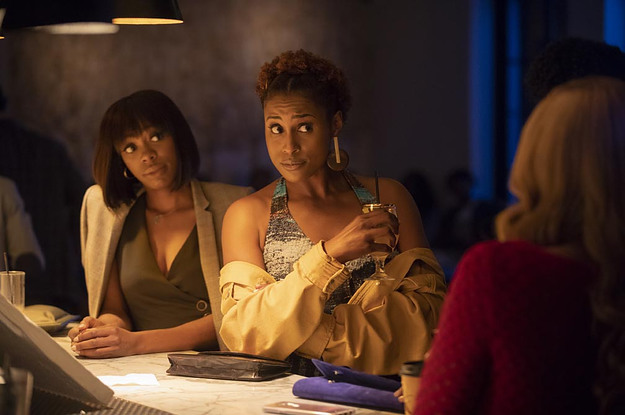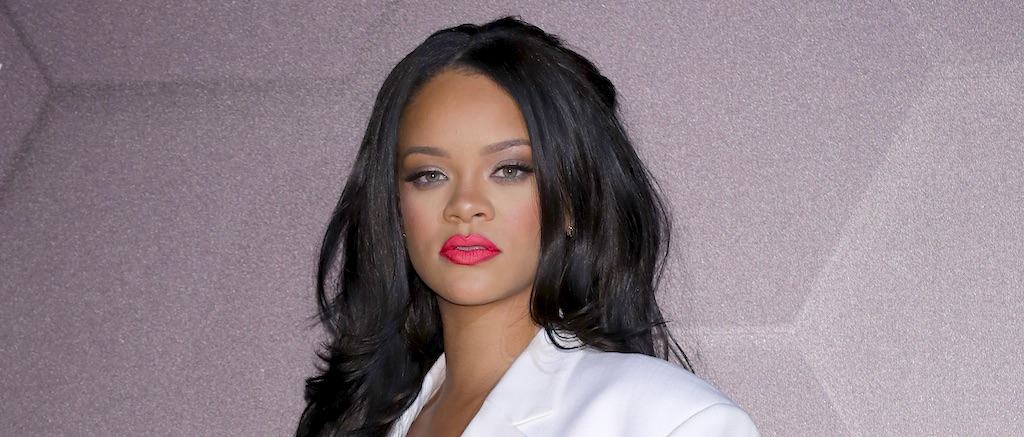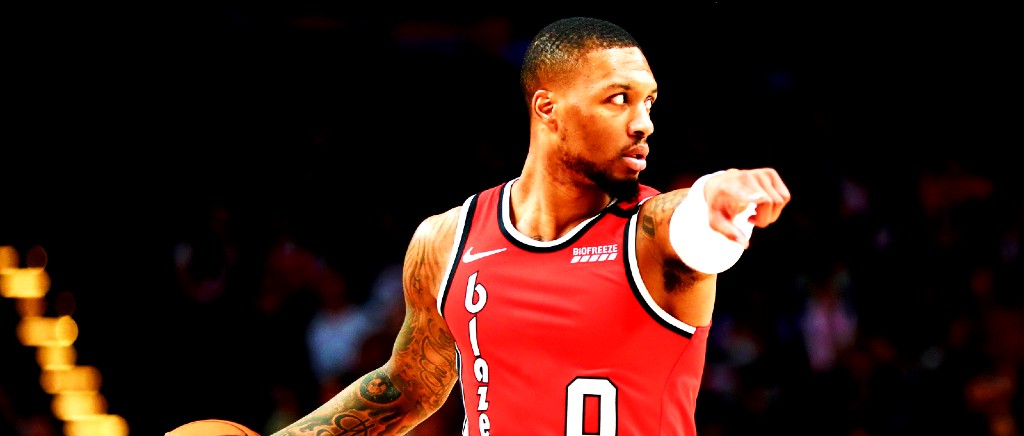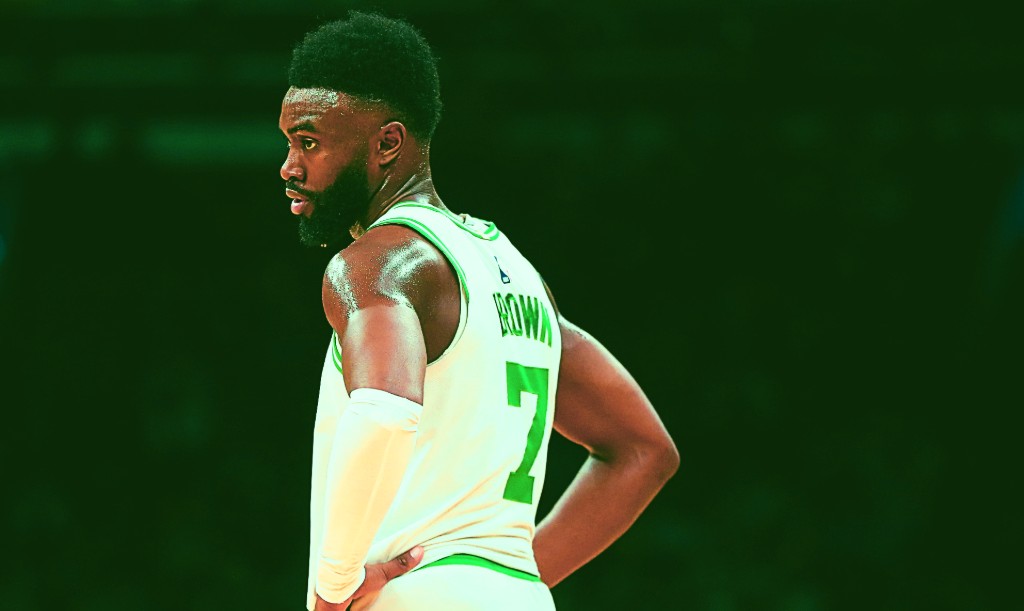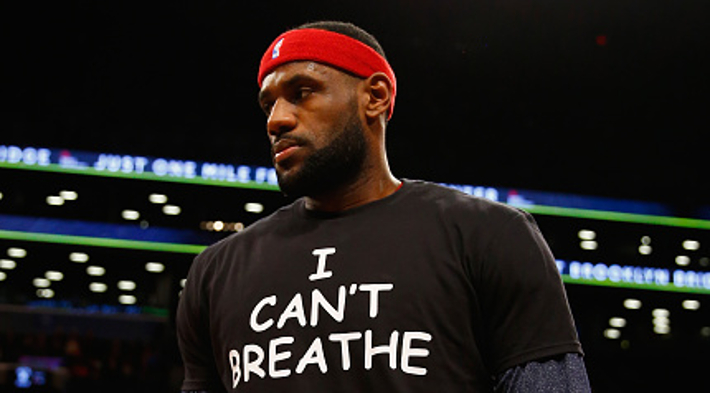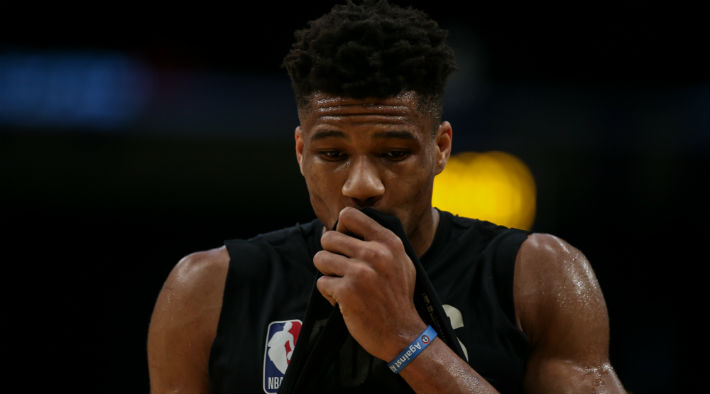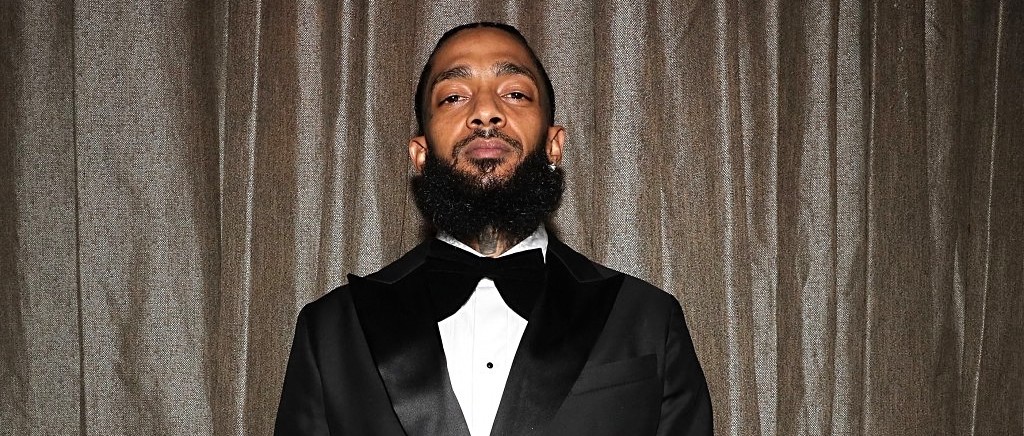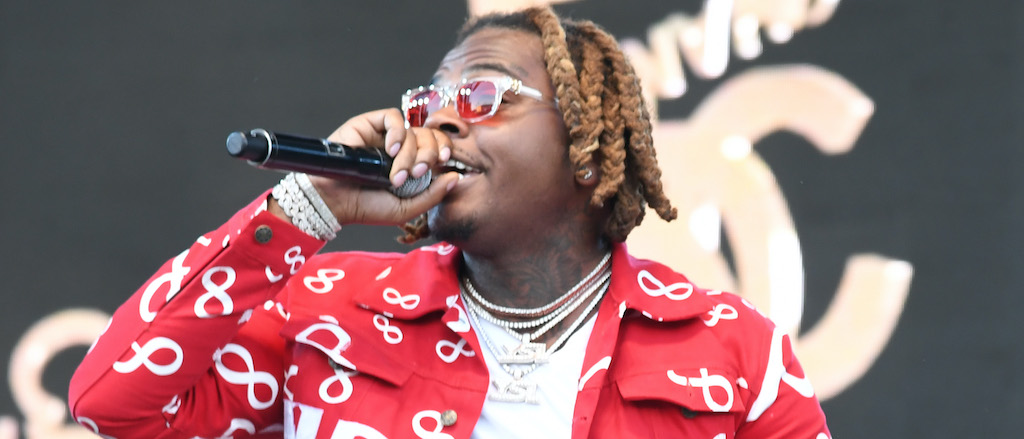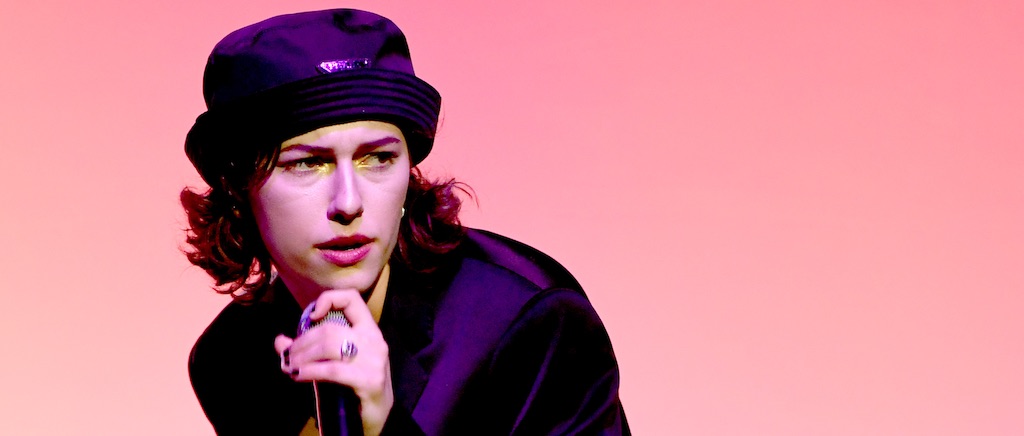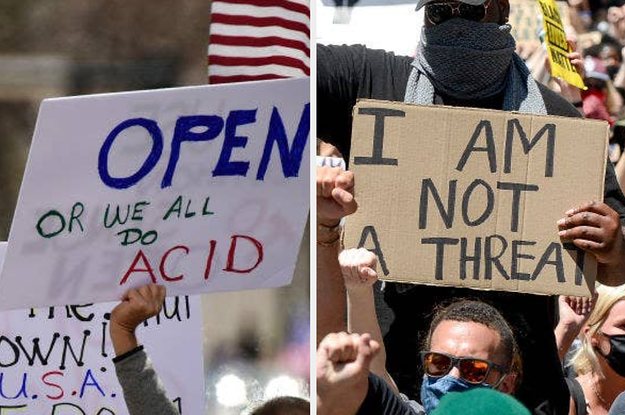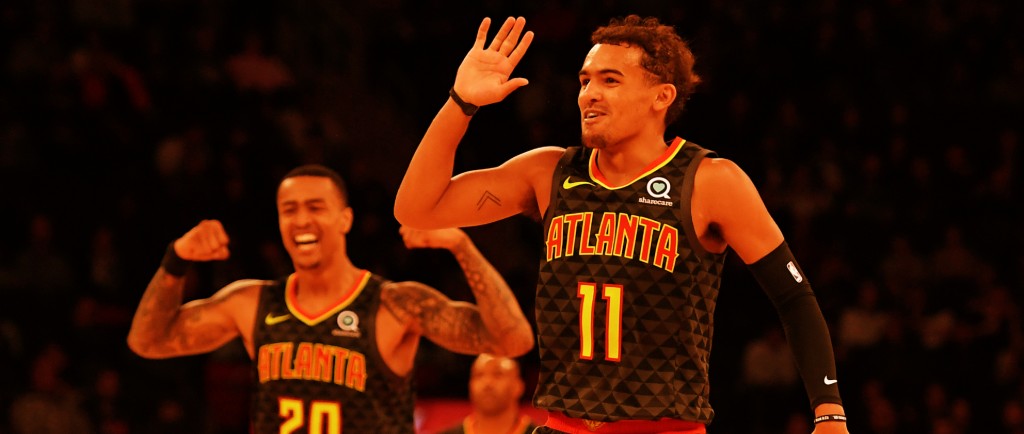
The RX is Uproxx Music’s stamp of approval for the best albums, songs, and music stories throughout the year. Inclusion in this category is the highest distinction we can bestow, and signals the most important music being released throughout the year. The RX is the music you need, right now.
On “Walking In The Snow,” the centerpiece moment from Run The Jewels’ fourth studio album, Killer Mike delivers a heart-wrenching verse in which he vividly recounts the NYPD killing of Eric Garner. It’s downright spooky how much it resonates in the wake of the more recent death of George Floyd at the hands of the Minneapolis Police Department — right down to the chilling refrain, “I can’t breathe.”
It’s tempting to say that RTJ4 is the most fitting document of our “current moment.” Welcome to the real world, where our current moment has been going on for over 100 years. Run The Jewels is not prescient or prophetic. They didn’t predict the uprisings currently sweeping the nation and the globe. They merely observe. When El-P points out on “JU$T,” “When your bases loaded / They’ll roll a grenade in the dugout,” he’s not hypothesizing. He’s talking about the burning of Black Wall Street, the destruction of the Black Panthers. When Mike wonders, “You believe corporations runnin’ marijuana?” it’s a loaded question. The subtext: Legal weed being corporatized at a terrifying pace after three decades of the “war on drugs” systematically undermined two generations of Black American communities, families, and opportunities.
Run The Jewels never predicted the future. They just spoke about what’s been going on all along. Where RTJ4 stands out is in its concision and clarity. Mike and El-P have always been blunt, slamming home their points over blustering beats provided by the maestro El-P and addressing the ills of modern society as often as they threaten to stomp out imposters. Here, though, there’s a new level of focus. They’re still plain-spoken and direct-to-the-point, but the hammer is accompanied now by a scalpel, cutting through to the heart of their truths and leaving the viscera on the table.
Over the phone, the two seers explained how their music remains as potent as ever, the ways their bond evolved over the years, what it means to be an ally, and what’s next for the revolution, which is indeed being televised.
‘Walking In The Snow’ punched me in the chest. It just took all my wind out. Mike says all you do is sit on your couch and Twitter rant. What happens after the Twitter rant?
El-P: I mean, you’re seeing it in the streets right now, right? You’re seeing it right now. Looking around f*cking Twitter, watching motherf*ckers tear sh*t apart, because at a certain point our generation is not f*cking having it. At a certain point, you react the way that the game has been set. If the game is set, you have nothing left to do but to get your voice heard and to say, ‘This is unacceptable.’ Then you tear sh*t down. That’s it.
Killer Mike: I would like to tell young people that all this has been done before, and there’s a level past this, of Bobby Seale saying, ‘You’re not outnumbered, you’re out organized.’ We burnt down Atlanta. They burned down in LA in ’92, they’ve rioted in the streets from New York to Miami before. This, what you’re doing, is natural. It is natural as a baby crying when it is popped. So do not be ashamed for what you’re doing, but there’s a level of organization after this.
I don’t have all those answers, but the people before you, whether it’s Eugene Debs or Stokely Carmichael, whether it’s Fannie Lou Hamer or Lucy Parkin, you can start to study that and study those techniques and see. What I can tell you first, though, is to look at the local [government]. That mayor should never be reelected, that chief should be exited with that mayor. Any city council, anybody who was not for those cops getting the death penalty. Then you have to decide you’re going to organize locally and change your local elections and your local laws. So that if a policeman does not at least have to engage in the one, two, three-isms that a soldier would have to do to engage, to kill someone, if you don’t change it so you have a community board with power to oversee police, and unions don’t have as much power, in terms of police unions being able to bully politicians, then we’re just going to keep burning sh*t every 20 years.
Jamie, you actually told Kweli on People’s Party that you can’t love Black music without loving Black people. What do you think it takes for Caucasian folks, folks of European descent? I don’t want to say “white” because I believe “white” is reserved for a very specific mindset. How do you step in and fill in the gap?
El-P: I will say that, first of all, I cannot speak for everybody. I don’t think I can speak for everybody because I didn’t have the exact same upbringing that everybody who looks like me had, in the sense that I was lucky enough to be born into a city that was multicultural, and I have always had a diverse group of friends. So it was, and it’s a little bit of a bubble, right? But what I can say is that I feel very strongly in this, and it’s the reason why I can confidently stand by my friend and make records in solidarity with him, and contribute to the conversation and not blink an eye, because I fully believe what I’m saying. And what I will say is this, it’s a few things that we touch on, on the record. One of which is a practical method.
The truth of the matter is, unless you take an offense against humanity personally, then you are not part of the human collective. The only way that any of this sh*t is ever going to change is if the people who are “allies,” friends, people who consider themselves empathetic, people who consider themselves good people, do more than simply just quietly empathize. We have to start taking an offense against our human brothers and sisters as an offense against us. It absolutely has to be as heartbreaking and as offensive to us as any other crime against another human. And it has to be all the time. It has to be that you feel it all the time, and that is the only functional way, in my mind, that things are going to change.
But let me present to you this thought. When they’re done, when they’re gone, when those people that are at the lowest of the totem pole of society, economically and culturally, the way that you have set it up, the way that it has been set up, when they’re done, who’s next? Because, and I say this on the record, funny thing about a cage, they’re never built for just one group. So when that cage is done with them and you’re still poor, it comes for you. Don’t f*cking forget that in your assistance of creating and enabling a police state, creating and enabling a cage, that cage is not disappearing the second that the people that you don’t care about are no longer there. You simply get to be the next group of people who suffer.
That’s capitalism. And that’s why when I watched the “Ooh La La” video, I actually cried a little bit because I didn’t know I wanted to see that so bad until you guys showed it to me. It was like, ‘Oh, hey, this is what happens after all these corrupt institutions are taken down.’
El-P: It was joyous. You know? I mean, I think we felt joy in doing it. You can see on the video, it was truly joyous. Everybody on that video was having the best f*cking day. We were all having the best day.
Killer Mike: I requested a jump rope, so it was a hell of a day for me.
El-P: I think that we reached for a metaphor that could communicate what we were trying to communicate, which is that freedom is something we don’t have yet. And until the constructs and the chains of our own caste system that we created are really gone — not that anyone’s won or lost, that simply humans have won — all of a sudden you wake up one day and there’s nothing there to delineate that anyone else is better or worse than anybody else. Wouldn’t that be fun? Wouldn’t that be a party?
Another thing that stood out to me is Pharrell speaking about “slave masters posing on your dollars,” which just feels like something different for him.
Killer Mike: Pharrell understood the perspective that Run the Jewels has and he added to it with that hook, because two things can exist or are existing simultaneously. I grew up in Atlanta, Georgia. I grew up with a Black political class. You have the cultural class. Black money. And that Black class figured out a way not to oppress, hurt, harm. Sometimes it’s debatable, arguable, but to work with the Black middle-working class and even the poor, to make sure that the city is one where a child who was raised by two grandparents gets to live his dream of being a rapper, but then gets to enter the business class to ownership and entrepreneurship.
So he’s not wrong for [coining] the “New Blacks” term. Or it’s not a contrast for this record. He came into the world of Run the Jewels and he added to help make it doper because he’s Pharrell. And he was dope, we was dope, and together it was dopest. I’m careful about that because we’re not Public Enemy. We love Public Enemy. We’re fans of Public Enemy.
El-P: We’re 100%, and I also think that with Pharrell, it’s like, look, there’s a reason why artists present themselves in multiple different ways or multiple different songs. And it’s because artists are more complex than one song. I’m going to be real with you. I thought that we were going to get some f*cking big commercial hook and sh*t, and this dude came back with the rawest hook of all time. And I was just like, ‘Yo, this sh*t is ill.’ And so I just want to appreciate him for that, because for us it felt like he really gave something to us.
Killer Mike: Shout out to our boy KP too, man. It’s always good to have a friend encouraging the homies, so KP really made sure, he’s a big fan of Run the Jewels. He used to be Outkast’s A&R, TLC’s A&R Usher. But he really wanted to see Run The Jewels and Pharrell do something. So I got to say, from that side, he was definitely an advocate in the ear.
Now, El, you’ve made the analogy of the four-album run before with EPMD, UGK, Outkast. What do you guys consider to be the biggest difference from the first Run The Jewels to Run the Jewels 4?
El-P: I mean, look, it’s not like you’re going to hear a Run the Jewels record and be like “Who are these guys?” It’s obviously us. It’s still me and my friend, trying to out rap each other and trying to make dope jams together. We’re trying to carve spaces out to keep ourselves excited about music and just to figure out new, fun ways to make dope classic rap jams.
At our core, we’re still inspired and we still feel fresh about the sh*t. When we get in a room together, it’s still electric. All other bullsh*t aside, when we’re together and we actually start seeing our vocals bounce off each other, and we start hearing that, we are always impressed with how it feels.
So in terms of what makes it different, we feel like this is a distillation of everything that we do and we really walked away from this feeling like we gave it our all and we stuck the landing. This is what the vibe was that we wanted to feel. And I don’t think there’s any radical departures, except we know going in how we want people to feel. We knew we wanted this to be raw and funky and joyous.
Killer Mike: It makes you want to do the Wop, too.
I know you have bigger expectations with this one, because it’s your first time on a real major platform. How do you handle the pressure of expectations and where is Run the Jewels next year?
El-P: On tour.
Killer Mike: We expect to be on tour and I think that our greatest expectations are to outdo ourselves. Our constant, constant, constant motivation is outdoing ourselves and not resting on our laurels. And that makes it easy to stay motivated to do dope sh*t, for us. Because I’m a fan of Run the Jewels. I’m in Run the Jewels and I like sitting around smoking, listening to dope ass rap music that gives me that wop and that bop and that feeling that I love rap music for. And that’s what RTJ 4 does.
We just stay in a constant evolution of trying to outdo ourselves. I saw OutKast do that when I was just an understudy who was lucky enough to hang around in the studio. I saw Big and Dre, every time, try to outdo the Big and Dre that was prior, two years before then. The secret to our newness or progressiveness, or whatever it’s described as, is simply that we’re running away from pausing in the accolades that we had the last record, and running toward whatever we have to do with this one.
RTJ4 is out now via Jewel Runners LLC. Get it here.

